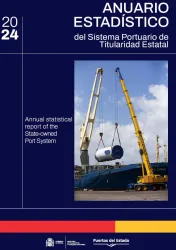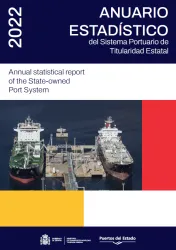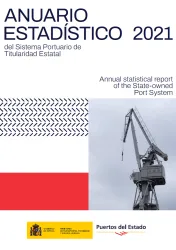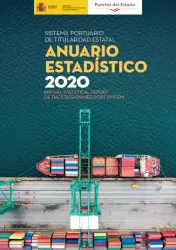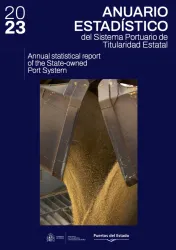
Annual
Annual Dashboard
Statistical Yearbooks of Puertos del Estado
Reports of the Port Authorities
Select the Port Authority you want by clicking on the red dot. You can change the year by selecting it and clicking "Filter".
Methodological note
- Title: Statistical Yearbook of the State-Owned Port System.
- Responsible Service: Statistics Department of the Public Entity Puertos del Estado (Ministerio de Transportes y Movilidad Sostenible of the Government of Spain).
- Geographical Scope: Data from all Port Authorities managing ports of general interest in Spain.
- Objective: Presentation of annual information on port traffic of goods, containers, ships, and passengers at Spanish ports of general interest. Additionally, information on the characteristics of the ports is included.
- Format: Report prepared in PDF with the option to download the data in XLSX format.
- Administrative Source of Data: The Statistical Yearbook is compiled using data included in the Annual Reports of the Port Authorities. These data, in turn, come from cargo manifests, summary declarations of temporary storage, fishing manifests, single port call declarations, and other documents used for calculating supply consumption and invoicing the corresponding fees.
- Frequency: Annual.
- Procedure: The Port Authorities send their Annual Reports to Puertos del Estado each year, which is responsible for compiling, processing, validating, aggregating, and disseminating all the information through the Statistical Yearbook.
- Study Variables: Tons of goods and equipment. Number of Intermodal Transport Units. Number of containers (in units and TEUs). Number and gross tonnage units of ships. Number of passengers. Number of automobiles (in both passenger and cargo regimes).
- Dissemination: Published on the Puertos del Estado website and selective dissemination of the information via email in October each year.

